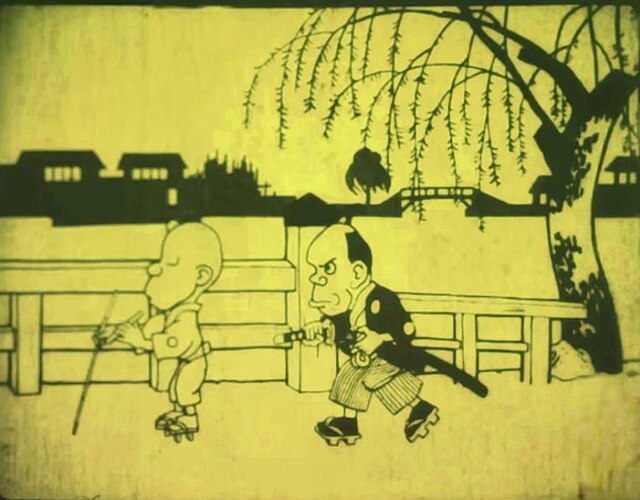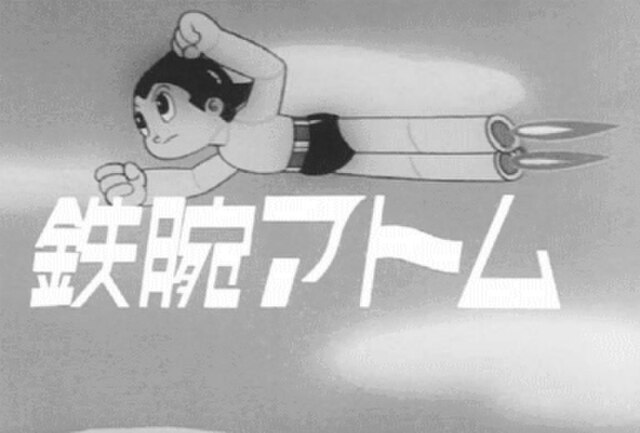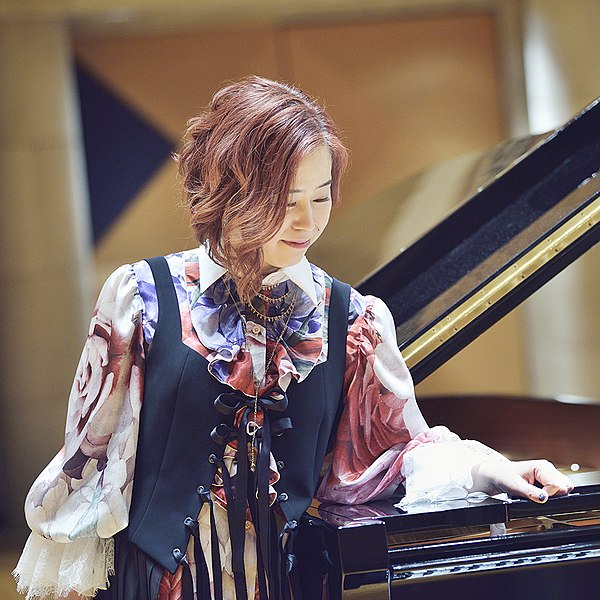Royal Space Force: The Wings of Honnêamise
Royal Space Force: The Wings of Honnêamise is a 1987 Japanese animated science fiction film written and directed by Hiroyuki Yamaga, co-produced by Hiroaki Inoue and Hiroyuki Sueyoshi, and planned by Toshio Okada and Shigeru Watanabe. Ryuichi Sakamoto, later to share the Academy Award for the soundtrack to The Last Emperor, served as music director. The film's story takes place on an alternate world where a disengaged young man, Shirotsugh, inspired by an idealistic woman named Riquinni, volunteers to become the first astronaut, a decision that draws them into both public and personal conflict. The film was the debut work of anime studio Gainax, whose later television and movie series Neon Genesis Evangelion would achieve international recognition, and was the first anime produced by toy and game manufacturer Bandai, eventually to become one of Japan's top anime video companies.
Japanese theatrical release poster
One of the "image sketch" paintings by Yoshiyuki Sadamoto and Mahiro Maeda that accompanied the original proposal for Royal Space Force.
Launch of Space Shuttle Discovery seen by Royal Space Force staff on August 27, 1985. Yamaga spoke of the impression of tremendous light and sound he received from witnessing the event.
Still image from a four-second sequence in Royal Space Force demonstrating the film's design emphasis on "ordinary" objects seen through a different world. A weather report glimpsed while the protagonist is channel surfing conveys a simultaneous impression of the Honnêamise kingdom's 1950s technology (black-and-white television using a round cathode ray tube), its physical layout, and its numeral and writing systems.
Anime is hand-drawn and computer-generated animation originating from Japan. Outside Japan and in English, anime refers specifically to animation produced in Japan. However, in Japan and Japanese, anime describes all animated works, regardless of style or origin. Many works of animation with a similar style to Japanese animation are also produced outside Japan. Video games sometimes also feature themes and art styles that are sometimes labelled as anime.
A frame from Namakura Gatana (1917), the oldest surviving Japanese animated short film made for cinemas
Frame from the opening sequence of Tezuka's 1963 TV series Astro Boy
Anime artists employ many distinct visual styles. Clockwise from the top left: Dead Leaves, Flag, Serial Experiments Lain, Monster, Mind Game, Lucky Star, Cat Soup, and Gurren Lagann.
Japanese composer Yuki Kajiura, known for her musical contributions to the soundtracks of several popular anime series such as Demon Slayer: Kimetsu no Yaiba, Sword Art Online and Puella Magi Madoka Magica








